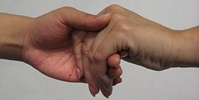|
|
 Acne (1,500) Acne (1,500)
 Addictions (1,500) Addictions (1,500)
 Advice (1,500) Advice (1,500)
 Allergies (1,092) Allergies (1,092)
 Alternative Medicine (1,500) Alternative Medicine (1,500)
 Anti Aging (1,500) Anti Aging (1,500)
 Breakup (1,500) Breakup (1,500)
 Cancer (1,499) Cancer (1,499)
 Dental Care (1,500) Dental Care (1,500)
 Disabilities (1,500) Disabilities (1,500)
 Divorce (1,500) Divorce (1,500)
 Elderly Care (1,498) Elderly Care (1,498)
 Goal Setting (1,500) Goal Setting (1,500)
 Hair Loss (1,500) Hair Loss (1,500)
 Health and Safety (1,497) Health and Safety (1,497)
 Hearing (1,500) Hearing (1,500)
 Law of Attraction (1,499) Law of Attraction (1,499)
 Marriage (1,500) Marriage (1,500)
 Medicine (1,497) Medicine (1,497)
 Meditation (1,499) Meditation (1,499)
 Men's Health (1,500) Men's Health (1,500)
 Mental Health (1,500) Mental Health (1,500)
 Motivational (1,500) Motivational (1,500)
 Nutrition (1,495) Nutrition (1,495)
 Personal Injury (1,499) Personal Injury (1,499)
 Plastic Surgeries (1,500) Plastic Surgeries (1,500)
 Pregnancy (1,496) Pregnancy (1,496)
 Psychology (1,500) Psychology (1,500)
 Public Speaking (1,500) Public Speaking (1,500)
 Quit Smoking (1,500) Quit Smoking (1,500)
 Religion (1,499) Religion (1,499)
 Self Help (1,500) Self Help (1,500)
 Skin Care (1,500) Skin Care (1,500)
 Sleep (1,500) Sleep (1,500)
 Stress Management (1,500) Stress Management (1,500)
 Teenagers (1,492) Teenagers (1,492)
 Time Management (1,500) Time Management (1,500)
 Weddings (1,500) Weddings (1,500)
 Wellness (1,500) Wellness (1,500)
 Women's Health (1,500) Women's Health (1,500)
 Women's Issues (1,500) Women's Issues (1,500)
|
Pancreatic cancer is currently the fifth most common form of cancer in the United States and is diagnosed in around 40,000 Americans each year. In most cases pancreatic cancer has an extremely poor survival outcome. Just 1 in 20 people diagnosed with pancreatic cancer will still be alive after five years.
The main reason pancreatic cancer has such a poor survival outcome is that the majority of cases are diagnosed when the cancer is at a very late stage. This is due to the non-specific symptoms associated with pancreatic cancer in its early stages. Early warning signs of pancreatic cancer include pain in the upper abdomen, jaundice, loss of appetite, and weight loss.
There are several risk factors that are known to affect an individuals probability of developing pancreatic cancer. While some of these cannot be changed, several can be influenced by sensible lifestyle and diet modifications.
Here are eleven of the more established risk factors for pancreatic cancer.
Age:The incidence of pancreatic cancer increases dramatically with age. Pancreatic cancer is extremely rare in people under the age of 50 with under 5% of all cases being diagnosed in this age bracket. Three-quarters of all cases of pancreatic cancer occur in people over the age of sixty.
Gender:As is the case with most other forms of cancer, males are around 10% more likely to develop pancreatic cancer than females.
Race:African Americans are 50% more likely to develop pancreatic cancer in their lifetimes than Caucasians. Native Hawaiians and New Zealand Maoris also have relatively high rates of pancreatic cancer.
Obesity:People who are overweight, and in particular those who carry a large amount of abdominal fat are at a greater risk of developing pancreatic cancer.
Diabetes:People who have been diagnosed with diabetes are slightly more likely to develop pancreatic cancer.
Family History:It is thought that around 10% of pancreatic cancers are inherited. A first degree relative who has been diagnosed with pancreatic cancer increases your chances of developing the disease three-fold.
Smoking:Heavy smokers who have been smoking for at least twenty years are at almost twice the risk of developing pancreatic cancer as non-smokers. Former smokers, light smokers, and tobacco chewers are also at a greater risk of developing pancreatic cancer.
Diet:A fatty diet, a diet high in red or processed meat, a high cholesterol diet, and a diet lacking in fresh fruit and vegetables are all thought to be linked to an increased risk of developing pancreatic cancer.
Physical Inactivity:People who engage in physical exercise less than once a week are at a significantly higher risk of developing pancreatic cancer than those who exercise three or more times a week.
Exposure To Carcinogens:Exposure to certain carcinogenic chemicals such as pesticides, dyes, cadmium, nickel, chromium, and asbestos dust may increase a persons chances of developing pancreatic cancer.
Alcohol ConsumptionThe evidence for a link between pancreatic cancer and alcohol is mixed. Heavy drinking can cause pancreatitis (inflammation of the pancreas) which has been linked to pancreatic cancer.
|
|
|



